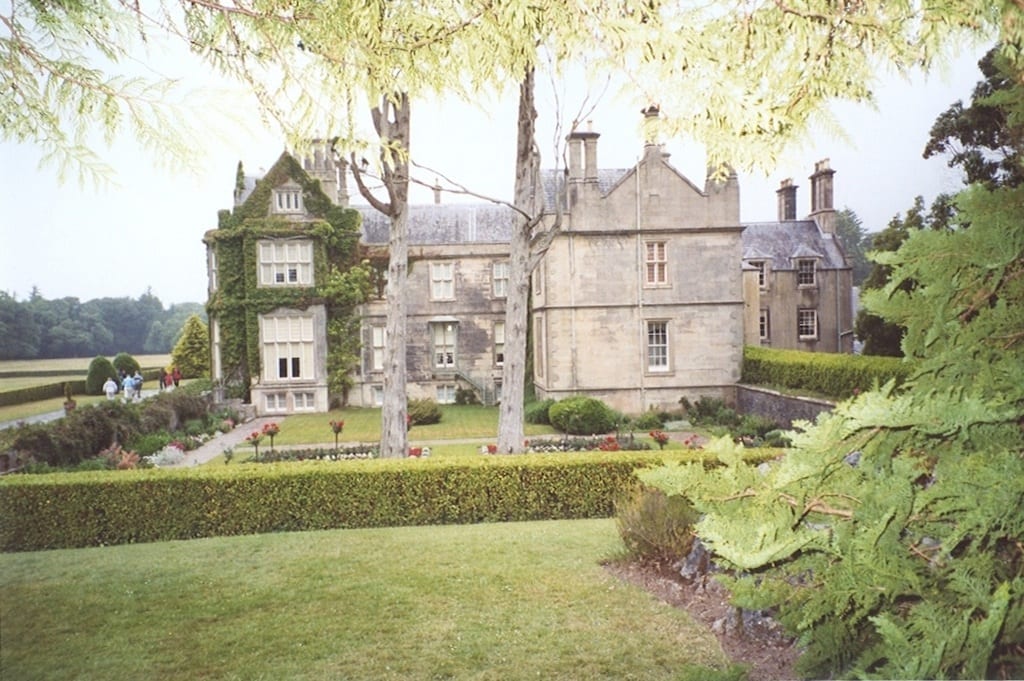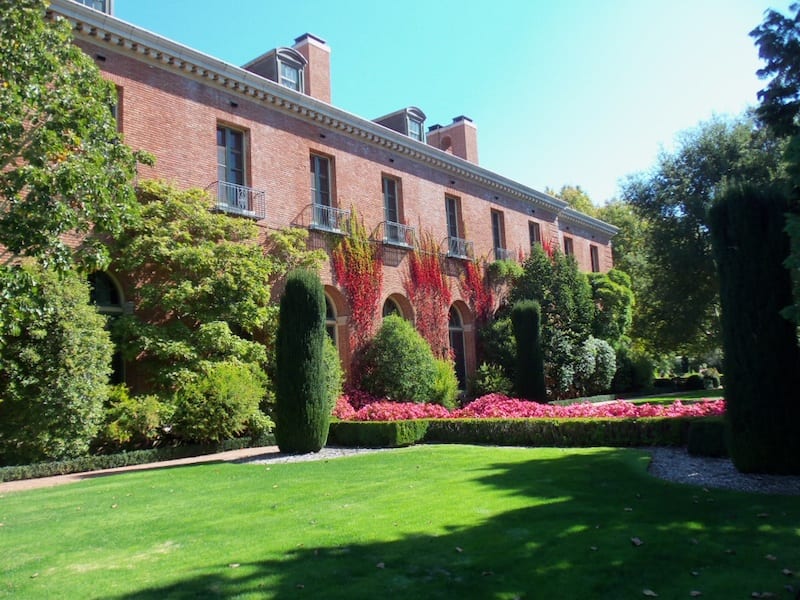In October, I traveled to New York City to see my daughter Jessica, to California to visit my long-time friend Winnie and to Dallas to attend another dear friend’s wedding – and spend time with other friends and my son David. Along the way, I met several people, saw many sights and gathered blog ideas. This is the second in a series of posts from my travels.
###
Filoli – “Fight for a just cause; Love your fellow man; Live a good life,” the oft-spoken credo of William Bowers Bourn II, a wealthy California entrepreneur of the Gilded Age and into the 20th century.
 During the orientation video that Winnie and I watched at Filoli’s Visitor Center, another house was mentioned. I remembered another trip – Ireland 2006 with Keith when we toured Muckross in Killarney. The 11,000-acre estate had been a wedding gift from a wealthy American businessman to his daughter in 1910 and, after her untimely death from pneumonia in 1929, donated to the Irish Nation in 1932.
During the orientation video that Winnie and I watched at Filoli’s Visitor Center, another house was mentioned. I remembered another trip – Ireland 2006 with Keith when we toured Muckross in Killarney. The 11,000-acre estate had been a wedding gift from a wealthy American businessman to his daughter in 1910 and, after her untimely death from pneumonia in 1929, donated to the Irish Nation in 1932.
The wealthy American businessman was William Bowers Bourn II, and Filoli in San Mateo County was his home. An ocean, continent and years apart, the stories came together.
After the earthquake in 1906, several families built large estates on the Peninsula south of San Francisco. Completed in 1917, Filoli is the only estate that remains in historic preservation, thanks to the Roth family who purchased Filoli after the deaths of both Mrs. and Mr. Bourn in 1936. The Roth family enriched the house and extensive gardens, and in 1975 donated the estate to the National Trust for Historic Preservation.
Whenever I visit an historic home, I look at family pictures and listen for voices, especially the children’s. At Filoli, I imagined the Roth’s son and twin daughters chattering in the transverse hallway, pestering the cooks in the kitchens, oohing and ahing at guests in the dining room and front courtyard, and whooping down the staircase banister. The Roths added a swimming pool and pavilion bathhouse, and there’s a tennis court and now a wedding place, too. As Winnie and I strolled the gardens, I heard “I do’s”, laughter around the pool and giggling from labyrinth hide-and-seeks.
But the sights and sounds in the ballroom belonged to the Bourns. One of Filoli’s 1200 volunteers, an elderly man sitting at a grand piano on stage, played Cole Porter songs, the music echoing in the empty 32-by-70-foot room with 22½-foot ceiling. Huge murals depicting Muckross House and Abbey and the Lakes of Killarney hung from the ballroom walls. The Bourns had visited Muckross frequently, but after Mr. Bourn’s debilitating strokes in 1921 and 1922, they did not travel or attend the parties at Filoli, the last given by the Bourns and hosted by his sister on November 25, 1933, celebrating the repeal of the 18th Amendment, Prohibition.
 Even in his absence, I heard Mr. Bourn’s voice from his wheelchair.
Even in his absence, I heard Mr. Bourn’s voice from his wheelchair.
“Fight for a just cause; Love your fellow man; Live a good life. Fight, Love and Live.” Filoli.



0 Comments